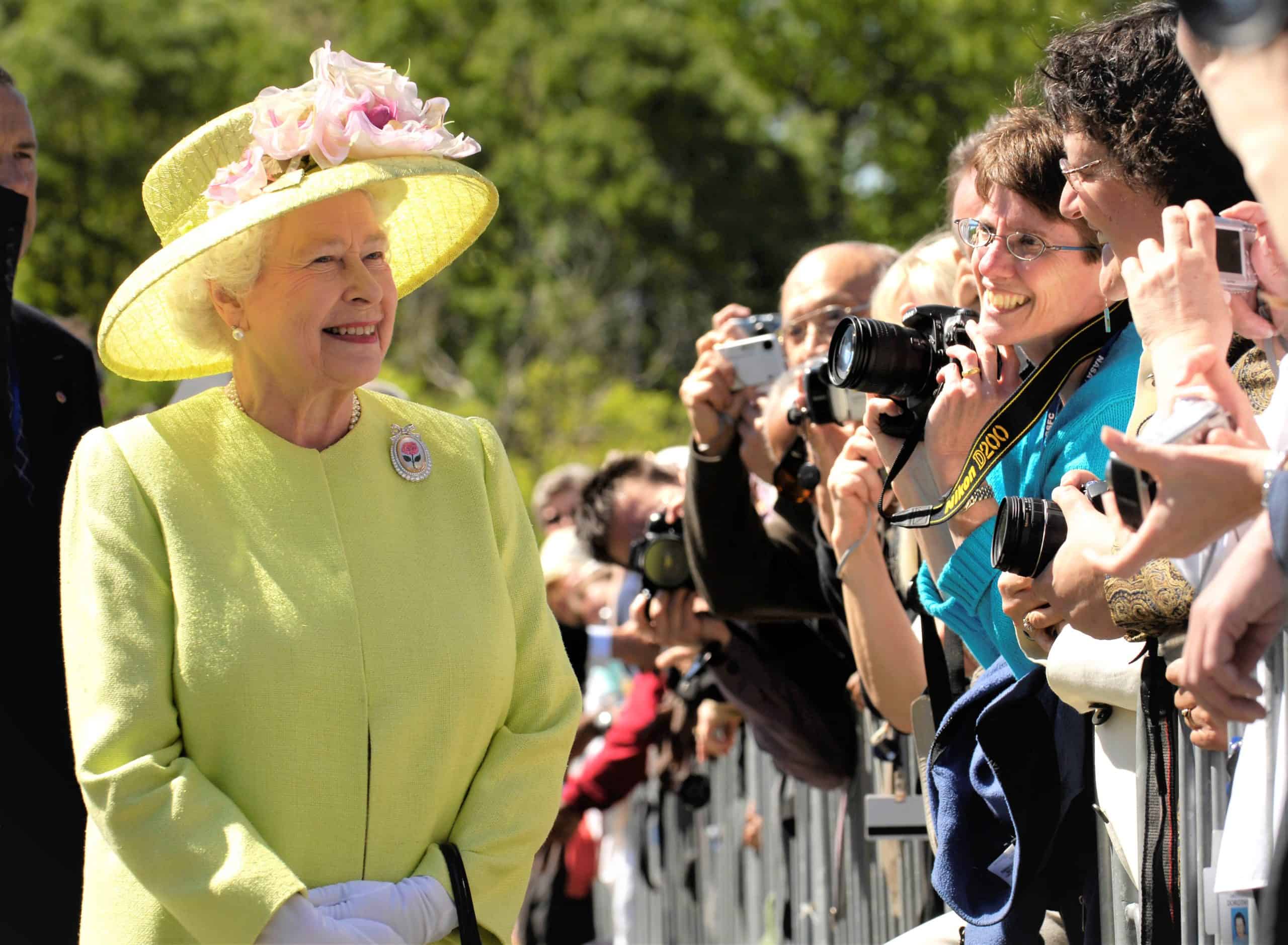When Queen Elizabeth II died on September 8, after seventy years on the throne, the United Kingdom and her other realms lost more than a head of state. So many reactions to the queen’s death, from the press, to social media, to interviews with citizens on the street, reflected on her role as a spiritual rock and source of comfort to her country for so many decades. Her funeral today will certainly be yet another occasion for such reflections on her long reign.
The comfort people have cited took a number of forms. Certainly, the queen was for many people in the UK an example of British spirit, a living reminder of the country’s war motto, “Keep Calm and Carry On.” The queen’s dedication was also something that many admired and counted on; commentators have frequently used words like “duty,” “service,” and “sacrifice” to describe her reign. The comfort she brought also had a spiritual and religious tenor to it, however.
The king or queen of the United Kingdom is, of course, deeply connected to religion. Since Henry VIII, the monarch has been Supreme Governor of the Church of England, and the monarch’s coronation ceremony takes the form of an Anglican service at which the Archbishop of Canterbury presides, anointing the monarch as God’s chosen leader. Prior to his break with the Catholic Church, Henry received the title “Defender of the Faith” from Pope Leo X, and successive monarchs have claimed this title as well.
Queen Elizabeth gave many indications of taking her role as a guardian of faith seriously. The monarch’s annual Christmas message, a practice her grandfather King George V began in the early 1930’s, was a time for her to reflect on her own faith as she imparted Christmas wishes on the Kingdom and the Commonwealth.
In her first Christmas message as sovereign, Elizabeth asked her listeners to pray to God for her, that she “may faithfully serve Him and you, all the days of my life.” She has often focused on the importance of service in her addresses. Observers have noted she returns often to the Parable of the Good Samaritan, who takes care of a stranger despite having no obligation to do so. She reminded her listeners in 2012 that “God sent his son ‘to serve, not to be served,’” and quoted the carol “In the Bleak Midwinter” in asking her listeners to reflect on what they can give to a God who has “restored love and service to the center of our lives in the person of Jesus Christ.”
In contrast to those who praised the queen’s sense of duty and her comforting stoicism, her death has also led to reflections about the role of the British Empire as a colonial power, including the sometimes brutal repression and racist attitudes and practices that accompanied the colonial endeavor. Indigenous citizens of her current and former colonies have had a mix of reactions to her death, some of them strongly negative. The queen’s personal role in British colonial practices since her accession to the throne in 1952 is difficult to assess, since the monarch is not supposed to play an active role in making policy, beyond providing advice. As with accusations of ill treatment of Princess Diana and members of her own family behind closed doors, Queen Elizabeth’s potential failings with respect to her colonial subjects will remain a subject of debate and an open question.
What we do know is that her attitude toward the Commonwealth pointed the changing empire in a new direction, one of informal cooperation among equals rather than formal rule from London. She congratulated former colonies that chose to become republics with their own heads of state, which had the effect of ending their ties to the monarchy. She was strongly interested in Commonwealth activities, to the point where a Commonwealth dispute led to one of very few public rifts between her and one of her prime ministers. When Margaret Thatcher refused to sign onto a Commonwealth declaration of sanctions against South Africa over its apartheid policy, the Queen’s displeasure with Thatcher’s stance became known in the press.
Was her opposition to apartheid related to her personal faith? We cannot know because she spoke so little about politics, out of necessity, due to the limited nature of her role. It was, however, consistent with her overall message of concern for the plight of those who suffered, and of the example of the Good Samaritan she cited so often, who looked with compassion on one who was suffering. It reflects her belief that God’s love “is for everyone” and beyond the reach of no one. It also reflects her belief in Jesus as “a role model for reconciliation and forgiveness.” It is interesting to note that a near constitutional crisis over a public break with the elected head of her government only happened once in the queen’s reign, and it had to do with people who were no longer her subjects, and who lived far from her own country.
It is also perhaps with an eye toward “reconciliation and forgiveness” that, despite the fact that their relationship was often difficult, she broke with her own precedent in personally attending Thatcher’s funeral, a practice she previously reserved only for Winston Churchill, her first prime minister.
While important questions remain about Queen Elizabeth’s legacy, one tribute has been unquestionable: the tens of thousands of people from the United Kingdom and around the world who came to pay tribute to the queen as she was lying in state in advance of today’s funeral, some waiting in line over twenty-four hours. I doubt many other world figures could arouse that kind of reaction in this day and age.


